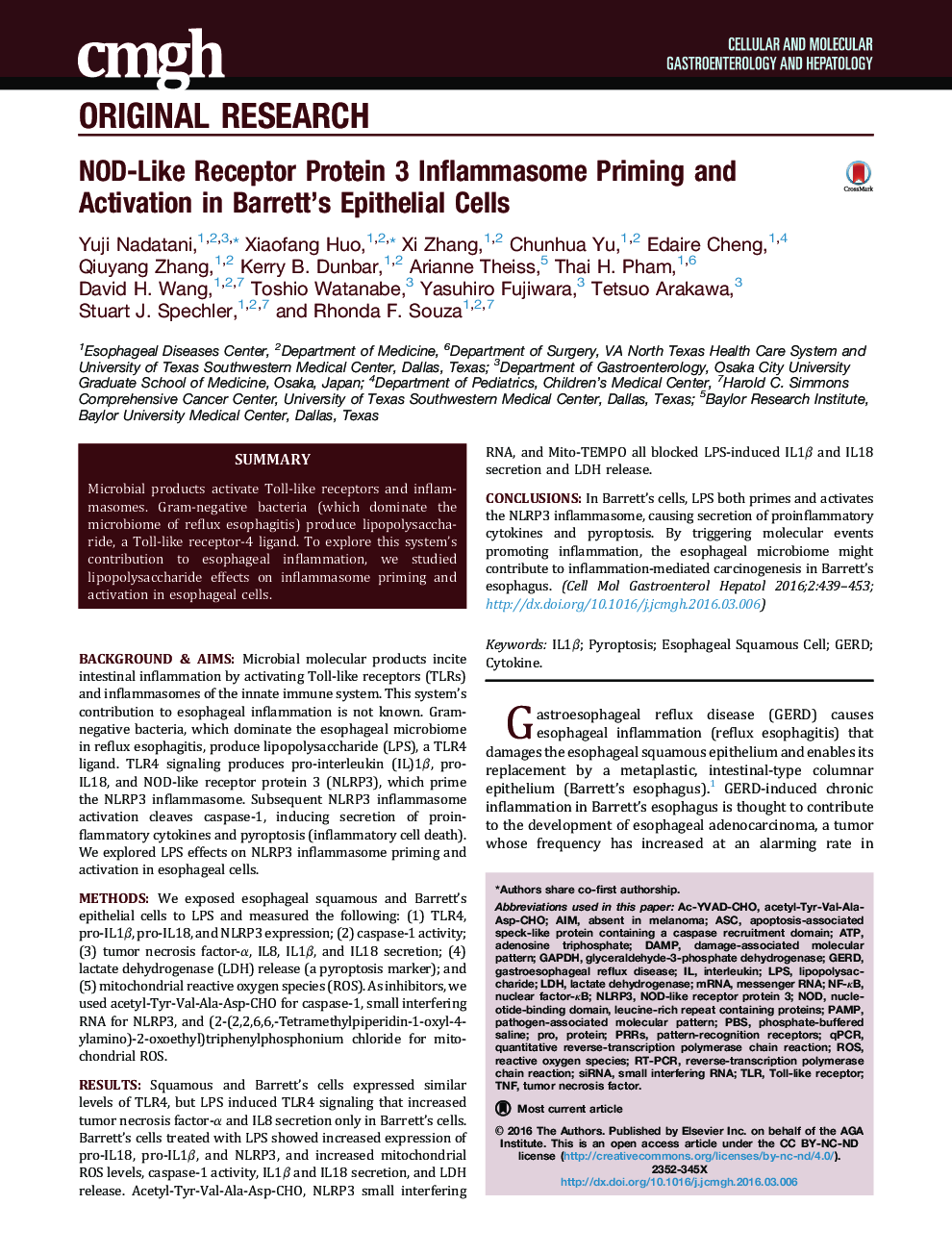| Article ID | Journal | Published Year | Pages | File Type |
|---|---|---|---|---|
| 2040691 | CMGH Cellular and Molecular Gastroenterology and Hepatology | 2016 | 15 Pages |
Background & AimsMicrobial molecular products incite intestinal inflammation by activating Toll-like receptors (TLRs) and inflammasomes of the innate immune system. This system’s contribution to esophageal inflammation is not known. Gram-negative bacteria, which dominate the esophageal microbiome in reflux esophagitis, produce lipopolysaccharide (LPS), a TLR4 ligand. TLR4 signaling produces pro-interleukin (IL)1β, pro-IL18, and NOD-like receptor protein 3 (NLRP3), which prime the NLRP3 inflammasome. Subsequent NLRP3 inflammasome activation cleaves caspase-1, inducing secretion of proinflammatory cytokines and pyroptosis (inflammatory cell death). We explored LPS effects on NLRP3 inflammasome priming and activation in esophageal cells.MethodsWe exposed esophageal squamous and Barrett’s epithelial cells to LPS and measured the following: (1) TLR4, pro-IL1β, pro-IL18, and NLRP3 expression; (2) caspase-1 activity; (3) tumor necrosis factor-α, IL8, IL1β, and IL18 secretion; (4) lactate dehydrogenase (LDH) release (a pyroptosis marker); and (5) mitochondrial reactive oxygen species (ROS). As inhibitors, we used acetyl-Tyr-Val-Ala-Asp-CHO for caspase-1, small interfering RNA for NLRP3, and (2-(2,2,6,6,-Tetramethylpiperidin-1-oxyl-4-ylamino)-2-oxoethyl)triphenylphosphonium chloride for mitochondrial ROS.ResultsSquamous and Barrett’s cells expressed similar levels of TLR4, but LPS induced TLR4 signaling that increased tumor necrosis factor-α and IL8 secretion only in Barrett’s cells. Barrett’s cells treated with LPS showed increased expression of pro-IL18, pro-IL1β, and NLRP3, and increased mitochondrial ROS levels, caspase-1 activity, IL1β and IL18 secretion, and LDH release. Acetyl-Tyr-Val-Ala-Asp-CHO, NLRP3 small interfering RNA, and Mito-TEMPO all blocked LPS-induced IL1β and IL18 secretion and LDH release.ConclusionsIn Barrett’s cells, LPS both primes and activates the NLRP3 inflammasome, causing secretion of proinflammatory cytokines and pyroptosis. By triggering molecular events promoting inflammation, the esophageal microbiome might contribute to inflammation-mediated carcinogenesis in Barrett’s esophagus.
